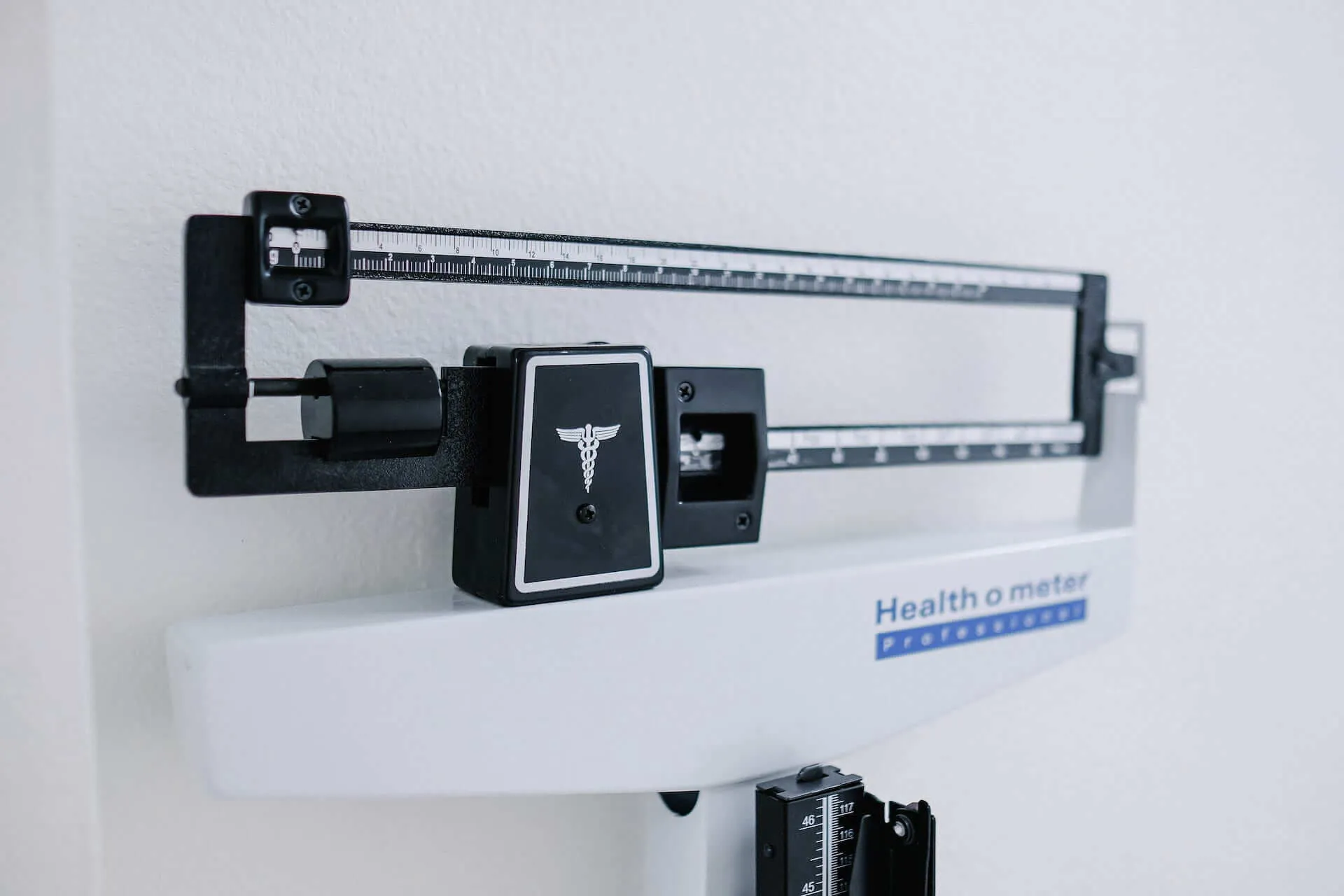While body weight is not always an indicator of overall health, it can play a role in wellness and contribute to some chronic medical conditions. If weight loss would benefit your well-being or improve symptoms of chronic disease, you may be familiar with the standard weight loss routes, including increased exercise and the typical weight-loss diets.
However, weight loss journeys are not one-size-fits-all, and sometimes the standard routes don’t work for everyone. If that’s true for you, medical weight loss programs might be an appropriate next step.
This article will discuss the ins and outs of medical weight loss programs and their potential role in safe, sustainable weight management.
What is Medical Weight Loss?
Medical weight loss programs are customized programs designed by qualified healthcare professionals. They are usually appropriate for those with a body mass index (BMI) greater than 30 or health conditions affecting previous weight loss efforts.
While research has shown that primary care physicians can successfully implement medical weight loss strategies, undergoing treatment at a weight loss clinic can offer a more in-depth process.1 To design a completely individualized medical weight loss plan, qualified medical professionals will consider their patient’s medical history, lifestyle habits, and current prescription medications.
Compared to the standard weight loss methods and fad diets, medical weight loss treatments set realistic weight loss goals and establish a safe plan to be completed under the supervision of a qualified healthcare professional in a medical weight loss clinic.
{{mid-cta}}
How Does a Medical Weight Loss Program Work?
A medical weight loss program differs from a standard weight loss program. It relies heavily on the presence and supervision of a qualified healthcare professional. While every weight loss plan is unique to a person’s medical history and the amount of weight they want to lose, medical weight loss programs typically have the following structure:
Consultation
Most medical weight loss plans will begin with an initial consultation to assess your medical history and lifestyle habits. Then, your healthcare provider will use that information to determine a healthy weight loss goal.
Body Composition Analysis
After your initial consultation, your provider may want to conduct a body composition analysis. A body composition analysis breaks down the number on the scale to help you better understand its contributing components: body fat, muscle, and water.
The analysis can be done using calipers and x-rays, but the most common method today is high-tech scales. These scales use an electrical current (undetectable by you) to assess any resistance present in the body. After the scan, you know the percentages of fat, muscle, and water in your body and their locations.
Diagnostic Testing
Your healthcare provider may want to assess your lab values and complete other diagnostic tests before starting your medical weight loss plan. These metabolic tests may look at your hormone levels or assess for potential thyroid issues affecting your weight loss efforts.
These tests also provide insight into your weight management's chemical and biological aspects. Since no two bodies are the same, this can be especially helpful in designing an individualized weight loss plan.
Tailored Strategy Development
Once your provider understands your medical history, they can design a weight loss strategy based on your needs. This tailored strategy can include diet changes, exercise recommendations, and medication support.
Diet Plan
Medical weight loss will address your eating habits and may prescribe an individualized eating plan. Most healthy diet plans will detail your macronutrient requirements and determine your specific carbohydrate, fat, and protein needs.
Exercise Routine
Along with diet changes, your provider may also prescribe an exercise routine. This physical training may take place at the weight loss clinic, depending on its equipment and staffing, or at your local gym with the guidance of a certified personal trainer.

Medication and Supplement Prescription
Some medical weight loss programs may involve prescription medication or supplementation. While today’s diet pills lack research and safety implications, medical weight-loss centers may rely on well-researched weight-loss medications, such as appetite suppressants. However, medicines are based on your needs and are best used under medical supervision.
Regular Checkups
Regular checkups with your medical weight loss team are the most critical aspect of your treatment plan. Follow-up appointments with your healthcare provider offer continued support to help prevent weight gain and support your mental health as you implement significant lifestyle changes.
What Are Medical Weight Loss Drugs? How Do They Work?
Medical weight loss drugs are typically used when someone has exhausted other standard weight loss methods. These prescription medications address your hunger cues, making you less hungry or feel fuller at meal times, and a professional healthcare provider must prescribe them.
They can be beneficial for significant weight loss when taken long-term, but they should also be combined with healthy lifestyle changes. According to a recent 2021 review of anti-obesity drugs, those taking weight-loss medications can expect to lose at least 3 to 7 percent of their body weight over a year.2
Benefits of Medical Weight Loss
Medical weight loss can offer health benefits that standard methods of weight loss cannot:
Tailored to Each Individual
Medical weight loss programs are tailored to fit each individual’s specific needs. When designed with your medical history in mind, your weight loss program includes details that fad diets and standardized physical training may not consider.
Managed and Supervised by a Doctor
Medical weight loss plans are designed by a doctor and managed and supervised by them. In addition, these doctors have years of training and education, adding another layer of safety as you make significant changes to your health.
Support Along the Way
Medical supervision also provides patients with mental and emotional support along the way. Implementing major lifestyle changes in pursuit of weight loss requires significant mental and emotional investment. Having the support of a doctor you trust can help keep you accountable for the process.
How to Choose a Medical Weight Loss Program to Ensure Safety and Effectiveness
When choosing a medical weight loss program, ensuring its safety and effectiveness is essential. Consider these factors as you search for the right program for you:
1. Ensure That Providers are Qualified and Experienced
The doctor and dietitian you trust with your weight loss journey must have the credentials and experience to successfully and safely conduct your program. Look for a program led by a medical doctor that also implores the help of a registered dietitian nutritionist.
2. Purchase Prescription Medicines From Reliable Sources
The diet industry is rapidly expanding. Unfortunately, with such rapid growth, many products that come from unreliable sources are hitting the market. These sources may not follow the required safety regulation and may put your health at risk.
If your doctor prescribes a medication, it’s best to purchase the prescription from the clinic or through outlets the clinic has vetted and approved. Also, be sure to check that your prescription medicines are FDA-approved.
3. Inform Doctors of Any Side Effects or Discomfort
Medical weight loss plans are not one-size-fits-all. Your doctors rely on your feedback to adjust your treatment plans as needed. Inform your care team about any side effects or discomforts so they can design your program with your success in mind.
Tips for a Successful Weight Loss Program
To ensure your weight loss program works effectively, consider these tips:
Stay Committed
Commitment is key to success in weight loss. Weight gain is usually a gradual process, and conversely, weight loss will also be a gradual process. Consider highlighting milestones to celebrate the journey and keep motivation high.
Consider Food Journaling
Life is busy, and it’s easy to lose sight of your nutritional intake. Consider keeping a food log or bullet journal to keep track of your food choices and make a note of any potential habits or patterns.
Keep Focused on the Main Goal
Sustainable weight loss is best achieved gradually. Set realistic goals, be patient with yourself, and trust the process designed for you by your medical doctor.

Find a Balance Between Discipline and Peace of Mind
Body image and weight loss can be mentally and emotionally taxing. Try to balance staying accountable to your weight loss goals and embracing life to the fullest. Weight loss should not come at the cost of your mental health.
Remember the Importance of a Nutrient-Rich Diet and Exercise
Well-balanced nutrition and regular exercise are essential to our overall health, especially when pursuing weight loss goals. Even with medical interventions in place, it’s vital to nourish your body and keep it moving.
Signos’ Unique Program for Weight Loss
It’s important to remember that your BMI does not define you, and the number on the scale does not determine your worth. But if losing weight would benefit your overall health and improve your quality of life, pursuing your weight loss goals under the guidance of a trained medical professional like a doctor or registered dietitian nutritionist can help you reach your goals safely and efficiently.
The Signos Weight-Loss Program can support your weight management goals. Because it’s uniquely tailored to the individual and supported by ongoing scientific research, it can help you achieve long-term healthy weight loss. We invite you to learn more about how Signos can improve your health and take a quick quiz to see if Signos is the right fit for you.
Topics discussed in this article:
References
- Haas, W. C., Moore, J. B., Kaplan, M., & Lazorick, S. (2012). Outcomes from a medical weight loss program: primary care clinics versus weight loss clinics. The American journal of medicine, 125(6), . https://doi.org/10.1016/j.amjmed.2011.07.039
- Tak, Y. J., & Lee, S. Y. (2021). Anti-Obesity Drugs: Long-Term Efficacy and Safety: An Updated Review. The World Journal of Men's Health, 39(2), 208-221. https://doi.org/10.5534/wjmh.200010




.svg)










.svg)
.svg)
.svg)
.svg)
.svg)
.svg)
.svg)
